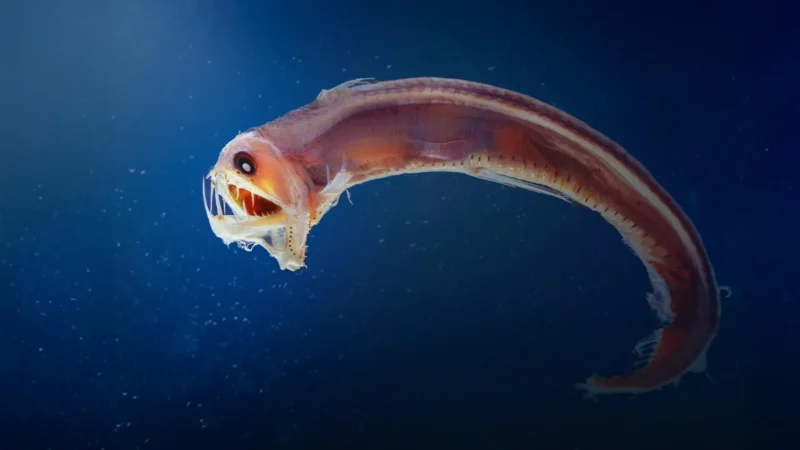Essential Insights
-
Direct Evidence of Carbonate Excretion: A new study confirms that deep-dwelling mesopelagic fish, including the blackbelly rosefish, excrete carbonate minerals at rates comparable to shallow-water species, validating global models of marine fish as significant contributors to oceanic biogenic carbonate production.
-
Significant Role in Carbon Cycling: The findings highlight mesopelagic fish’s essential role in maintaining ocean chemistry and carbon cycling, offering new insights into the ocean’s carbonate budget and stress the importance of ichthyocarbonate in climate dynamics.
-
Consistent Mechanisms Across Depths: The study reveals that the composition and formation of ichthyocarbonate in mesopelagic fish are similar to those in shallower species, indicating that depth and pressure do not impede carbonate production.
- Implications for Future Research: These results pave the way for further studies on deep-sea carbon dynamics and could enhance Earth system models that consider interactions between biological, chemical, and physical processes in marine environments.
The Role of Deep-Sea Fish in Carbon Production
Recent research reveals that deep-water mesopelagic fish have a significant impact on Earth’s carbon cycle. Specifically, a study finds that species like the blackbelly rosefish actively excrete carbonate minerals. This process matches the rates observed in shallow-water fish. Thus, scientists now recognize these deep-sea creatures as contributors to biogenic carbonate production in the ocean. Historically, our understanding of marine ecosystems primarily focused on surface-level species. However, with these new findings, we must rethink the importance of mesopelagic fish. These fish do not merely serve as prey; they actively shape the chemical dynamics of our oceans.
Moreover, the study highlights that the mechanisms of carbonate formation remain consistent across deep and shallow environments. This discovery underscores the depth of biological interaction within our oceans. Scientists conducted this research in controlled conditions, ensuring accurate data. They replicated the chilly depths at which these fish thrive, yielding results that confirm existing global estimates. As such, scientific models predicting fish-derived carbonate production gain newfound credibility. Understanding these contributions could reshape how we approach ocean conservation, especially regarding climate change.
Implications for Ocean Chemistry and Future Research
The findings provide a vital insight into the ocean’s carbon cycle. Since mesopelagic fish represent up to 94 percent of global fish biomass, their role merits further investigation. Changes in ocean temperatures may affect their contribution to carbonate production. Therefore, researchers advocate for more attention to these underexplored depths. Previous assumptions about deep-sea fish lacked empirical support; now, scientists initiate a new chapter in marine research. These insights also offer pathways for refining Earth system models, which account for complex interactions in marine and atmospheric sciences.
As we face increasing climate challenges, the importance of these fish becomes even more pronounced. Insights gained from studying ichthyocarbonate can enhance our understanding of carbon dynamics. However, this research also raises questions about the future of marine ecosystems. Will warming oceans alter the roles these fish play? Investigating these challenges will become crucial as we aim to protect our planet’s health. The mesopelagic zone remains largely enigmatic. Yet, by embracing these discoveries, we can better navigate our intricate relationship with the ocean.
Stay Ahead with the Latest Tech Trends
Learn how the Internet of Things (IoT) is transforming everyday life.
Stay inspired by the vast knowledge available on Wikipedia.
TechV1

